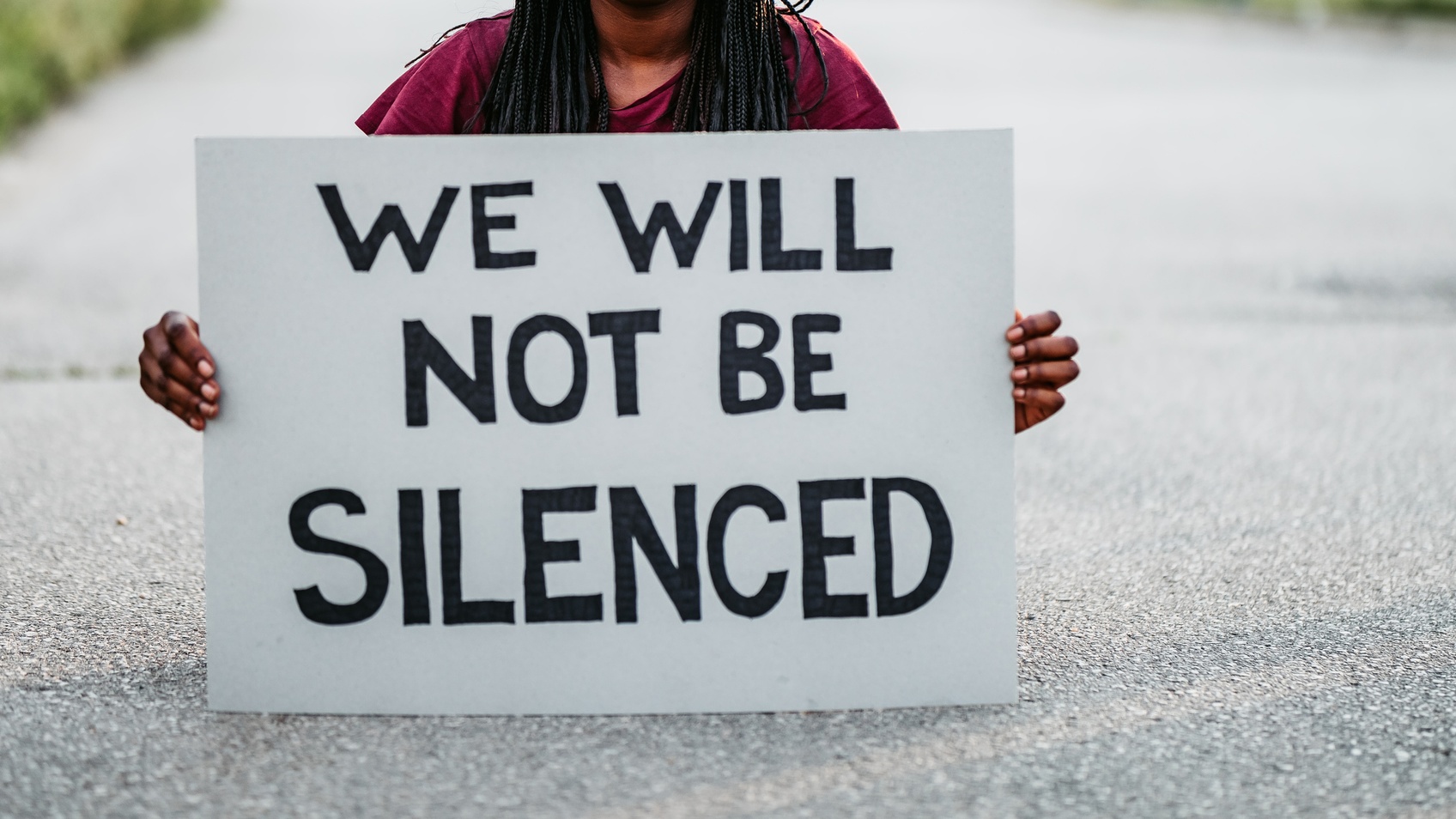Advocates and pioneers sat down for a panel conversation on the movement to end sexual violence against Black women and girls on Luncthable on Wednesday.
The event titled "Godmothers of the Movement to End Sexual Violence Against Black Women and Girls" dived into the historical context of Black women and their agenda to combat sexual violence and provide a way forward.
Author and professor emerita Paula J. Giddings and Karma Cottman, executive director of Ujima Inc. The National Center on Violence Against Women in the Black Community joined professor Loretta J. Ross and Paris Hatcher, founder and director of Black Feminist Future, for the panel conversation.
Throughout the discussion, the women spoke candidly about the fight for gender justice and sexual violence within the Black community.
Ross, who started anti-rape advocacy in the '70s, said she was "excoriated" for calling out interracial sexual violence because "we were surrounded by a bunch of people who were taking on the fight against white supremacy front and center."
"They thought we were betraying the race by even naming sexual violence in the Black community," Ross said. "But all the Black women we knew and worked with had been harmed by Black men."
Cottman elaborated saying that gender justice is critical to understanding Black justice.
"The importance of our health, the importance of our wholeness, is critical to us as a community actually achieving wholeness and wellness," she said.
The panel followed Black Survivor Week of Action, a joint effort by 'Me Too' International, the National Women's Law Center and Time's Up Foundation. The week of action campaign was founded to raise awareness and amplify the voices of Black sexual violence survivors.
The week-long event kicked off on Monday and wrapped up on April 30, following the February debut of We, As Ourselves— a change campaign focusing on Black survivors and their experiences.
Throughout the first-ever Black Survivor Week of Action, each day highlighted a different, but connected, theme supporting the specific needs of Black survivors.
On Monday, organizers encouraged participants to watch a love letter video to Black survivors and to take a pledge in support of the movement.
On Tuesday, supporters of the week were asked to view and share narrative-driven works crafted by content creators in collaboration with the Center for Cultural Power.
The following two days were dedicated to uplifting the survivor community as well as highlighting community organizations and leaders' advocacy. To close things out, observers of the week were encouraged on Friday to amplify and elevate Black journalists trying to shift the narratives about Black survivors.
According to a release from the change campaign, Black survivors have played a key role throughout the country’s history to call out sexual violence and abusers. However, despite the improvement of awareness on the issue, Black survivors’ stories have gone under-reported, suppressed or silenced.
“Black women are subjected to both racism and sexism—a double bind that puts black women at higher risk for sexual violence,” a May 2020 report from Time's Up revealed. “The combined and compounded effects of sexism and racism can heighten depressive and PTSD symptoms.”
The report also raised awareness of the “low rates of outpatient mental health use in general by black Americans, combined with a general distrust of the mental health profession and concerns about ‘betraying’ one’s race when the perpetrator is also black,” which decreases the chances that Black survivors will seek support or treatment.
According to the Human Rights Campaign, half of all Black transgender women have been victims of sexual abuse, and two-thirds of Black transgender people said they would be uncomfortable seeking help from the police.
In a 2018 study conducted by the National Center For Violence Against Women In The Black Community, the organization discovered that for every Black woman who reports rape, at least 15 women go without reporting.
Fatima Goss Graves, the executive director of the National Women’s Law Center for Glamour, said that it’s time we reimagine a world where survivors and their experiences are prioritized and heard.
“What would it look like if we could actually be ourselves without the range of factors that undermine our stories? What would it look like in this case to be able to center Black survivors, their story, their ability to find justice, and their ability to heal?” she said about the week-long event.
For more information, resources and tools in regards to Black survivors of abuse, visit Weasourselves.org for updates or for steps on how you can get involved.
You can watch the full conversation on Lunchtable below:
